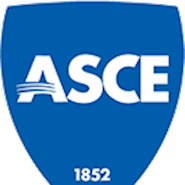ASCE has honored Sybil Derrible, Ph.D., M.ASCE; Shihong Lin, Ph.D., A.M.ASCE; Steve WaiChing Sun, Ph.D., M.ASCE; and Thomas Wahl, Ph.D., A.M.ASCE, with the 2023 Huber Research Prizes.
University of Illinois, Chicago Associate Professor Sybil Derrible is recognized for outstanding research focusing on smart, sustainable, and resilient infrastructure. His research interests are focused on a vision for the future of cities, striving to study and design urban infrastructure that is smarter, more sustainable, and more resilient. Toward this goal, he chooses not to focus on one urban infrastructure system, but on all, including water, wastewater, transportation, electricity, gas, telecommunications, and solid waste, adopting an urban metabolism approach and studying interrelationships and interdependencies between infrastructure. For this he uses innovative research methods. Beyond the technical aspect of his work, Derrible has also advanced the understanding of urban infrastructure at a conceptual level. All this work has produced an impressive research record through publications and talks.
Vanderbilt University Associate Professor Shihong Lin is honored for his contributions in advancing fundamental understanding and developing innovative technologies for water separation processes to address critical challenges in water and resource sustainability. Lin is the best young scholar in the field of membrane, one of the few scholars who are not only talented in materials synthesis and characterization but also thermodynamic theories. This unique combination of expertise and knowledge provides him with a robust ground to design materials-based research that can make a real impact in improving process efficiency and reducing cost within thermodynamic boundaries. It allows Lin to avoid the research that can lead to only marginal improvements even when the research is successfully accomplished.
Columbia University Associate Professor Steve WaiChing Sun is recognized for his fundamental contributions to computational and data-driven poromechanics. He has developed innovative numerical methods to solve multiscale and multiphysics problems. A particular interest has been applications to geomechanical problems involving coupling between deformation and the flow of heat and fluid. Recently, Sun has pioneered the application of graph theory and machine learning to computational mechanics. He is the first to introduce the concept of a knowledge graph to mathematically represent mechanics principles used in a plasticity model. He is also the first to leverage a technique called reinforcement learning the deduce the optimal plasticity models for sand, salt, and polycrystalline materials.
University of Central Florida Associate Professor Thomas Wahl is honored for pioneering work on coastal compound flooding and developing innovative multivariate design concepts. He is one of the leaders in the field of compound extreme events. A “compound event” refers to a combination of processes (climate drivers and hazards) that lead to a significant impact – for example, extreme precipitation and surge occurring at the same time. In his fundamental 2015 paper in Nature Climate Change, Wahl showed that the likelihood of joint occurrence of precipitation and surge for the contiguous United States has increased. His work also revealed that the risk of compound flooding is higher for the Atlantic/Gulf coast compared with the Pacific coast. Current engineering design concepts do not consider the interactions between these two phenomena. For this reason, Wahl’s work is highly relevant to our profession and deserves a great deal of attention. In a series of relevant publications, he demonstrated the importance of assessing compound flooding events (with multiple drivers) in a nonstationary framework and understanding their linkages to weather and climate conditions. His work on compound flooding from storm surges and precipitation along the U.S. coast, summarized in a seminal paper published with Nature Climate Change, helped shaping a new and active research field. He is also in an ongoing collaboration with scientists from the U.S. Geological Survey to support their National Assessment of Coastal Change Hazards Program.
The Walter L. Huber Civil Engineering Research Prizes are awarded to members of the Society, in any grade, for notable achievements in research related to civil engineering. Preference is given to younger members (generally under 40 years of age) of early accomplishment who can be expected to continue fruitful careers in research.



